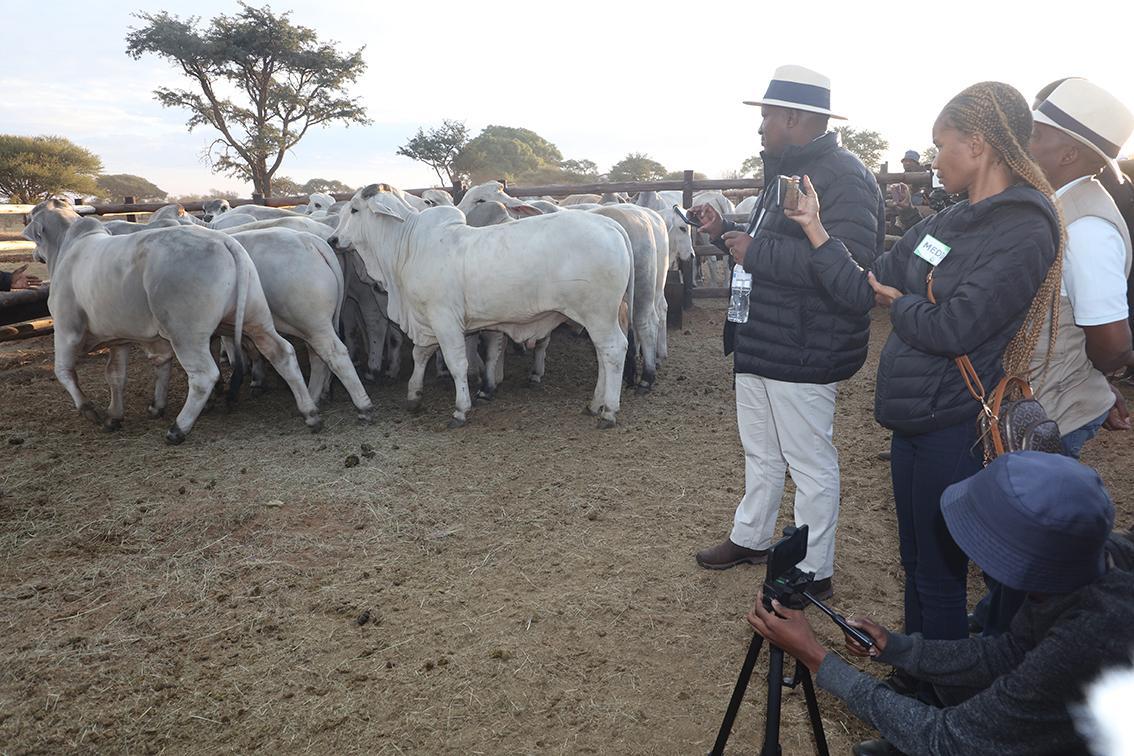Africa-Press – Botswana. Government will spend over P93 million to upgrade Ramatlabama Artificial Insemination (AI) laboratory and training centre.
Minister of Agriculture, Mr Fidelis Molao, said this on Sunday during a media tour of the facility.
Mr Molao told the media that the project, which would include upgrading infrastructure and introducing AI in small stock as well as multiple ovulation embryo transfer in both smallstock and cattle, was expected to be completed on March 31, 2025.
He indicated that government had already allocated P50 million of the budgeted P93 million to the ministry and part of it was used to purchase the recently received live animals, which he explained was a planned procurement aimed at improving livestock under the current financial year.
“Upon completion of the laboratory upgrading, we estimate that we will produce about 8.4 million semen straws and 300 embryos per annum. The development will be a major improvement as the current annual production was 22 500 semen straws,” he said.
Minister Molao informed the media that over the years, the Ramatlabama AI laboratory had been performing unsatisfactorily and its production capacity declining due to, among other factors, the limited number of bulls.
“Expectation is that the imported bulls will improve the situation at Ramatlabama AI,” said the minister.
He also indicated that the price of locally tapped semen would be affordable for the benefit of all farmers, thereby increasing cattle herd and genetic merit.
Therefore, Mr Molao appealed to the media to assist government in sensitising and educating the public on the strategic importance of the project to the nation.
“The consignment of the 161 cattle has placed the ministry in line with the Reset Agenda as it has identified assisted reproductive technologies such as AI and embryo transfer as technologies that can be used to improve and develop the livestock sub-sector,” he said.
He further explained that government had purchased 162 cattle but only 161 cattle, aged between 12 and 16 months, were received, adding one of the Brahman bulls valued at $7 750 (about P106 600) was dropped during preparations for the long trip because it was declared unfit.
“The bull will be replaced with straws of semen equivalent to its price. Bulls that will not perform to the expectations will equally be replaced by semen straws equivalent to its purchase price,” Mr Molao added.
The minister expressed hope the animals would unlock business opportunities in the livestock sector and promote private sector participation in the areas of stud and commercial breeding, production as well as distribution of liquid nitrogen, embryo transfer and AI services.
“It is against this background that government through the ministry came up with the Revised AI programme to address the challenge of the declining national herd as well as improve its genetic merit,” he said.
He added that the revised AI programme would specifically promote adoption and use of modern technology in livestock breeding (reproductive technologies for livestock), promote investment in fodder production for improved livestock productivity as well as promote private sector participation in the livestock value chain.
Additionally, Mr Molao said, the improved AI programme would result in upgrading of the Ramatlabama National Artificial Insemination Laboratory (NAIL) into an export facility and centre of excellence, conserving and promoting indigenous breeds such as Mosi, Tswana and Tuli.
Furthermore, he indicated that since the launch of the new AI programme, the ministry was, during the 2022/2023 financial year, able to procure 12 200 foreign semen straws from USA and France at a cost of P7.2 million.
Under the current financial year, through the budget allocated to the department of animal production, he said 2 000 straws of semen of Simmental beef cattle were procured from Switzerland at a cost of P100 000, adding that another 2 401 dairy sexed semen was also bought from Switzerland at P800 000.
“In addition, the ministry is expecting delivery of 3 000 sexed beef semen straws (1 500 males and 1 500 females) also from Switzerland at a cost of about P1 million,” he said.
He added that the foreign semen was available at Ramatlabama for purchase by farmers.
On the uptake of cattle at AI, the minister said 6 527 cattle were received at AI camps across the country under the current year and would, going forward, increase through synchronisation and on the farm AI.
Mr Molao further acknowledged the importance of educating farmers and therefore the Ramatlabama AI and all other facilities under the ministry would be engaged to give everyone the much needed education in exploring the agricultural value chain.
On one hand, the minister said the imported cattle would not by any chance affect the taste of the Botswana beef, adding ‘the taste is determined by what the animals are fed and that their growth was not enhanced by the use of any organisms, therefore the imported cattle will equally produce beef of the desired quality and taste.’
Meanwhile, Mr Molao said government had not stolen anyone’s idea or anyone’s intellectual property by purchasing the live cattle.
“What is being done is to improve the AI service which government has been doing over the years in line with the advancing technology,” he explained.
He added that government would continue getting more ideas on developing the agricultural sector.
“We encourage the private sector to engage in exploring the agricultural value chain and where possible partner with government to improve the livestock sector which was the backbone of livelihoods,” he said.
For More News And Analysis About Botswana Follow Africa-Press






